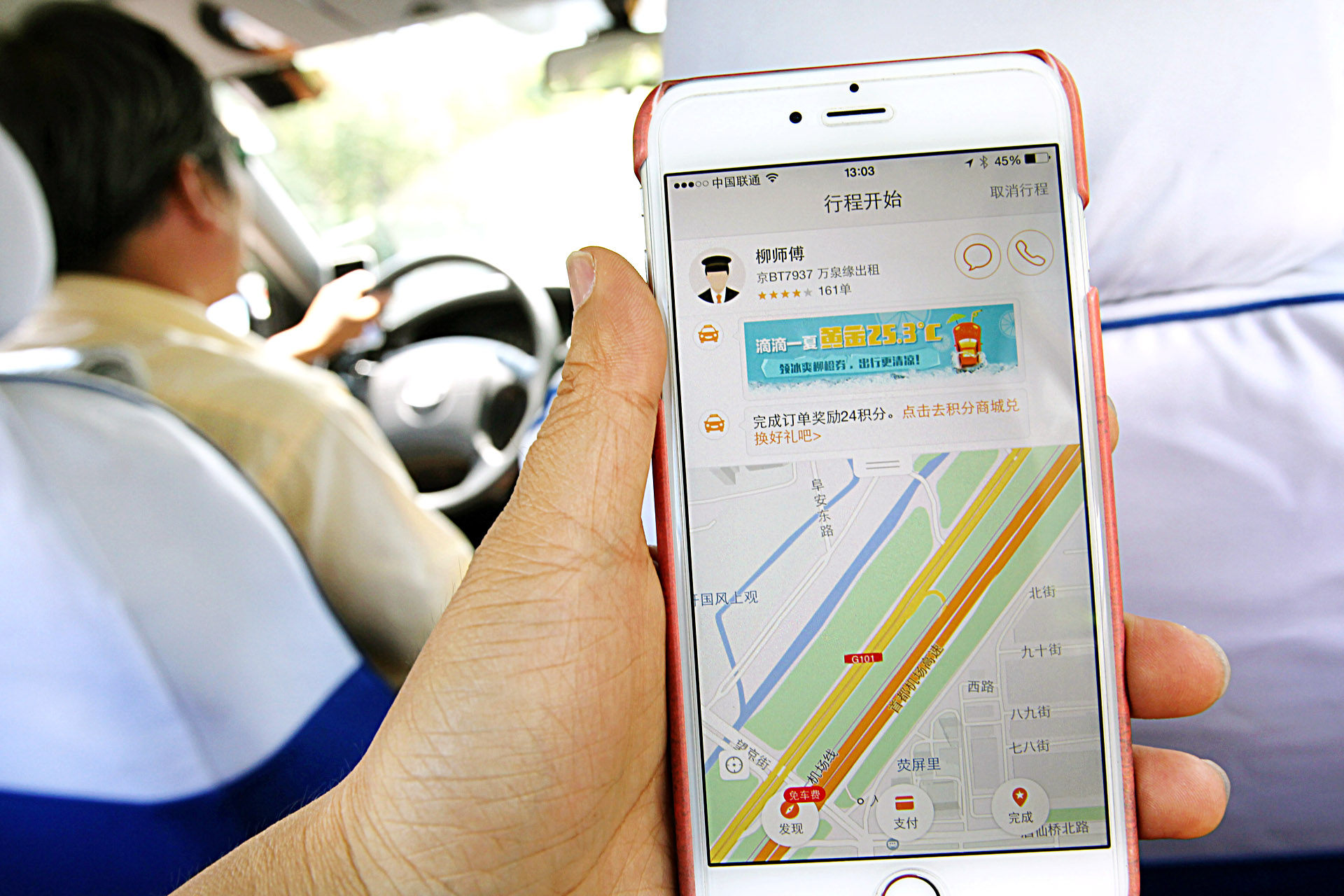Ride-sharing services such as Didi, Yidao, and Uber, which liberated so many of us from the tyranny of terrible taxi service in Beijing, may be dealt a severe blow if new regulations released over the weekend go into effect.
The new policies place strict restrictions on both cars and drivers. Only holders of a Beijing hukou will be allowed to drive for private ride-share companies in the capital. The new policies will also enforce a minimum-size requirement for vehicles used by the car-hailing apps.
According to a statement released by the ride-share company Didi, the new regulations will drastically reduce the number of available cars and drivers as few of their vehicles or drivers can meet the stringent new provisions.
The policies are apparently part of an ongoing not-so-secret initiative to deprive Beijing residents of “nice things.” Officially, though, Beijing’s Transport Commission, who drafted the new rules, says that the regulations will help spare Beijing from traffic congestion and air pollution. Yeah, right.
But not everyone is unhappy with the new policies. The Global Times managed to find a white-collar worker named Huang to spout some mildly-elitist blather about funny talkin’ drivers who can’t find their way around Beijing.
"This is a boon for passengers," said a Beijing-based white-collar worker surnamed Huang. She complained that unqualified drivers had dragged down the industry's overall service quality and caused market chaos.
"Non-local drivers are not familiar with local traffic conditions. They usually waste a lot of time finding the right way through online navigation services, and sometimes I have difficulty understanding their accents," Huang told the Global Times on Saturday.
Seriously. Since when has a Beijing hukou meant knowing your way around? Most licensed taxi drivers in Beijing couldn’t find their own rectal opening with a cartographic chart and a magnetic navigational aid. This woman is arguing that GPS, which I will tell you is the single greatest advantage of these ride-share services, is a waste of time.
Needless to say, Didi and the other ride-share companies are completely freaking out. For them, this is possibly an extinction-level event.
In a statement released to the media over the weekend, Didi warned that consumers and drivers would suffer the most from the new rules.
“App-based ride-share becomes affordable thanks to the high-cost efficiency of privately-owned vehicles. Operating costs are bound to rise sharply if only Passat or Audi A4L-level luxury sedans are allowed. In some cases, ride-share fares might rise to twice as much as comparable taxi fares.
“Millions of ride-hailing drivers will lose their job and income. It means that millions of families will lose their major source of income.”
A date to begin enforcing the new regulations has not yet been set. Although an unscientific survey of the Beijinger staffers suggests that the wait for a car using Uber and Didi has increased dramatically over the past few weeks.
RELATED: 5 Ways to Stay Safe and Avoid Ghosts on Uber and Didi in Beijing
The new regulations will also affect ride-sharing services in two other major cities in China. In their statement, Didi said that only one in five Didi vehicles in Shanghai would meet the minimum size requirements and that fewer than 10,000 out of a total 410,000 drivers in that city had a Shanghai hukou.
Things had been looking up for ride-sharing in Beijing. This past July, the central government legalized online car-hailing services. In August, Didi acquired Uber’s China business.
Photo: SCMP
